#because it being this confusing and ill-constructed means there’s a lot of opportunity for abuse and things to fly under mods’ radars
Explore tagged Tumblr posts
Text
discord servers love having a thousand channels both vague enough to be incredibly confusing in what you’re allowed to post where and hyper-specific enough that you’ll get yelled at for posting the “wrong” thing in place where any reasonable person would think it belongs
#i do not understand why so many servers are so rigidly structured. this is needlessly difficult to moderate#and if the amount of people “accidentally” posting the same similar kind of wrong stuff in specific channels is any indication#is clearly confusing and ill-designed for any regular members.#i wish i could reorganize so many servers y’all NEED to cut down on and combine at least half the channels#rewrite the channel description and also my god you do not need twenty pages of rules#nobody i mean Nobody is reading all that and that is 100% why people are consistently baffled and confused when you tell them they’re#violating a much more niche rule. because nobody is remembering every single facet of that wall of text#brother i don’t think YOU are either.#this bugs me so much. i’m not a neurotic control freak (<— liar) i’m just a regular guy who knows that this is#obviously inefficient poorly-designed and difficult to actually follow even when people are trying to act in good faith#and abide by the server rules and structure. this is to say nothing of anyone that wants to be malicious about it#because it being this confusing and ill-constructed means there’s a lot of opportunity for abuse and things to fly under mods’ radars#like you have to have a huge staff to be able to moderate all these channels and remember actually harmful rule violations#it’s completely infeasible unless you have a Massive admin structure and lots of mods with lots of time and care#rant over i am simply annoyed at any server i enter that’s like this and is only a few hundred members large at most.
2 notes
·
View notes
Text
Thoughts on Karin’s Magical Girl Story
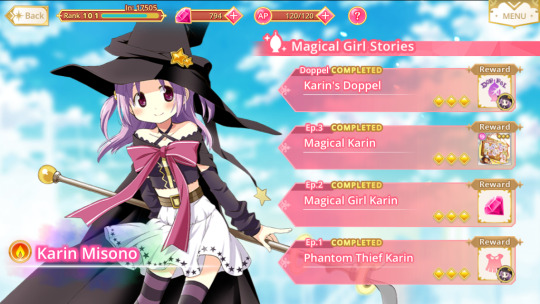
Another collection of thoughts and reactions, plus analyzing some small changes the NA translation made (similar to the translation comparison I did for Alina’s MGS a while back).
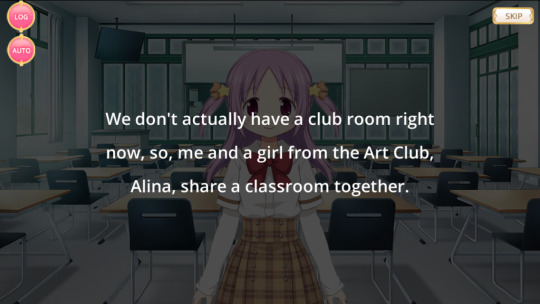
Starting off with not a change, but an interesting note: Karin and Alina’s club situation is rather strange. Alina is the “outsider” from the Art Club, while Karin is part of the Manga Club. The classroom they share, though, doesn’t appear to be the main space for either club. I’d initially assumed that it was the room originally used for the Manga Club, but once Arc 2 updates these backgrounds...

It turns out this actually is an art classroom! I guess the school just has two?
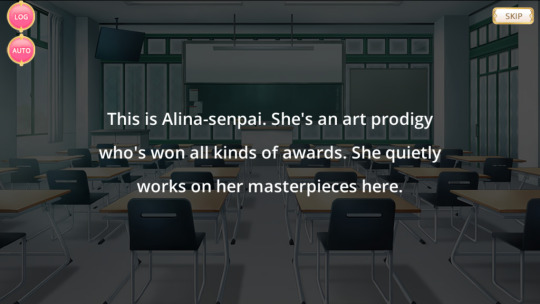

First major change: Just like in Alina’s MGS, they removed direct references to Karin and Alina’s ages. The reference to Karin’s age at the start of the Magical Halloween Theater event was also changed.
(In JP here, Alina was said to have won a lot of different awards “for a 16 year old,” while Karin stated her age as 14 in the MHT event.)
Again, unsure of why the change, but it could be in order to fix the continuity issues. Because good lord, that continuity is snarled...
I think the order that makes the most sense is Karin MGS > Alina MGS > Magius forms > one year passes > MHT > Main Story Ch5 > Holy Alina’s MGS. In theory, then Karin should be 13 and Alina should be 15 in their Magical Girl Stories and then 14 and 16 in the present, but as mentioned that’s contradicted by the start of Karin’s MGS in the original Japanese.
There’s also the weirdness around when/how Karin learned Alina was a magical girl, since Karin seems aware of it in MHT, yet it’s unclear if she knows in Holy Alina’s MGS.
… Anyway, stuff like this is why I gave up on constructing a coherent timeline for Magia Record. There’s just too many continuity tangles. ¯\_(ツ)_/¯
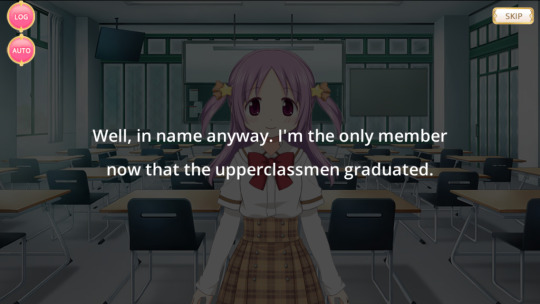

References to Karin being in her second year in middle school and the third years leaving – also changed. Probably because it’s both an uncommon way to refer to grades in English, and also, once again, another continuity issue. (If the third years left, why is Alina still there in one years’ time if she’s at least one grade ahead of Karin?)
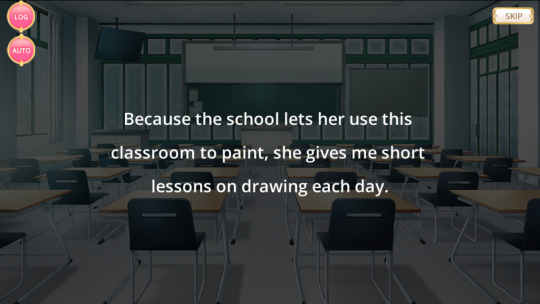

Another change: some specifics in why Karin and Alina are in the same classroom together. In JP, it’s not specified who made the deal to let Alina use the room. If anything it seems like Karin is the one making a deal directly with Alina.
Which actually makes far more sense all around – why does “the school” care that Alina is giving informal lessons to some random kid?
And it makes more sense from Alina’s perspective too, in that it explains why she tolerates Karin constantly bothering her – putting up with Karin is explicitly the price she’s paying to Karin for using the space.

Oh boy, this. Karin having this mindset is why it took me so long to really ship AliKari. Because the dark undertone to “if only I improve, then surely Alina will treat me better” is that Karin is blaming herself when Alina is cruel to her. And that can very easily slide into an abusive relationship - if you don’t consider it one already.
Alina treating Karin decently should not be dependent on Karin’s art skill. Or anything else, for that matter. Full stop.
(Tangent time, including some Arc 2 spoilers)
What ultimately made me come around to AliKari is some of the early Arc 2 stuff, where Karin starts thinking the reason Alina disappeared is because Alina is mad at Karin for not improving. Karin’s explanation is spectacularly wrong, so I’m now more trusting that the game is implying that Karin’s mindset is going to change. That she’ll stop believing she’s at fault for Alina’s actions - and hopefully stand up to Alina too while she’s at it.
The other half of the equation is Alina, who as far as I can tell, is genuinely not interested in bullying Karin. She certainly has every opportunity to do so – especially given how her teacher punishes Karin for Alina’s behavior – but Alina never takes advantage of it. So while she is overly harsh and blunt about expressing her opinions to Karin, I don’t get the sense there is any manipulation underlying it. Indeed, very unusually for Alina, we also never see her enjoying or fantasizing about Karin’s pain or distress. She really, truly, just wants Karin to get better at art already!
Obviously, for any kind of relationship between the two to work, they would both need to undergo significant character development. But that’s the draw of AliKari – while other characters have stagnated (sigh, RikaRen), Alina and Karin are still some of the most dynamic characters in the game. And in general, the direction has been that despite starting out in a bad place (like Karin’s mindset above), they’re growing to become very positive influences on each other.
(End tangent)


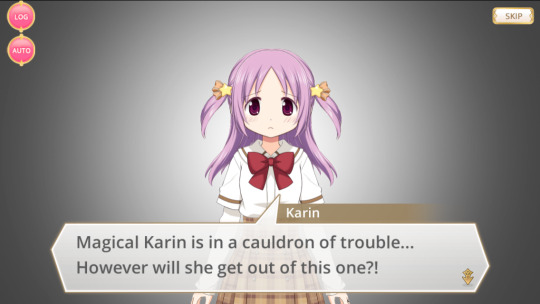

Enjoying the extra cliches thrown in here and there, and in general how they translated Karin’s dramatics by adding additional cheesy and on-theme descriptions. Stuff like “dark and dreary night” or “cauldron of trouble” aren’t in the original Japanese, but they’re wonderfully in-character – honestly probably an improvement over the original!

Not a change, but more reminding myself that I really need to read Kamikaze Kaitou Jeanne. I’m like 97% sure that’s what’s being referenced here – the plot description and even the comments Karin makes about “Phantom Thief Kirin” In her later Magic unlock quotes are all a very close match.
Interestingly enough, I’ve heard KKJ mentioned as an earlier dark magical girl series that Madoka Magica rips off. So it’s quite interesting to see it referenced again back in a PMMM property – I wonder which part of the creative team was responsible for this detail?
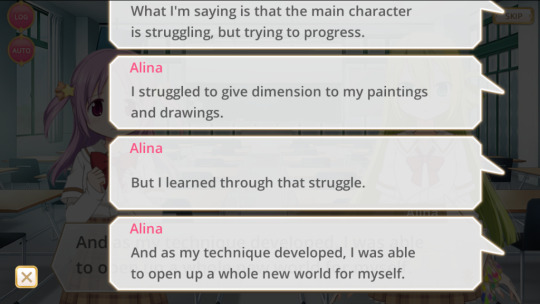
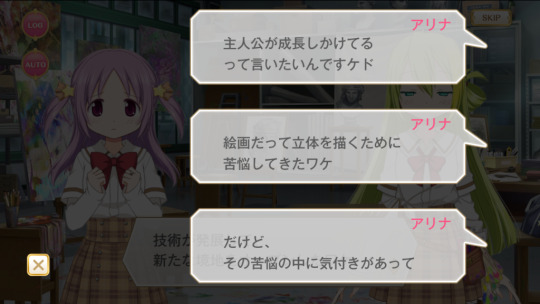
Hm, so, the subject and detail of Karin and Alina’s conversation in the middle differs between translations. In JP, the subject is vague, so the fan translation has Alina going off on an extended metaphor comparing the history of art to the protagonist of Karin’s manga. Meanwhile, in NA she just makes vague comments comparing her own growth as an artist.
I think I prefer the former - Alina usually doesn’t like talking about herself, but she sure loves to ramble about art history.
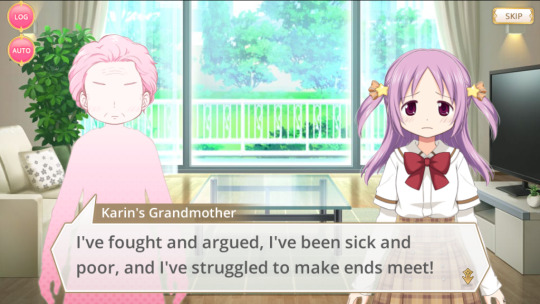

The translation I can find for the metaphor Karin’s grandmother uses here in JP renders it “barely able to keep a business going” - so did Karin’s grandmother possibly own a business herself? That’s a bit more interesting than just “struggled to make ends meet.”
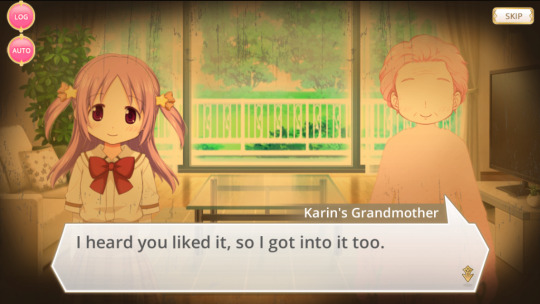
Speaking of Karin’s grandmother, I really like her as a character. Her relationship with Karin is really sweet - I mean, how often do you see a teenage girl and an older woman being fans of something together? It happens in real life plenty of times, but it’s so rare to see this kind of interaction represented in fiction.

And it’s nice to see an example of mental illness being treated as just that – an illness. I especially like that there’s consent to the cure – Grandma outright says she wishes to be cured, rather than Karin deciding as such on her own. (As Karin is often wont to do…)

This is a fun illustration of how Alina has a very strong internal logic to her, but she’s really terrible at communicating it to other people.
Karin, naturally, takes Alina’s comment here as an exceptionally mean thing to say – it sounds like Alina is callously implying the thing Karin worked so hard on was so bad it wasn’t even worth Alina’s time to destroy, so she’s making Karin suffer even more in having to destroy it herself.
And the way Alina elaborates makes it quite clear that yes, she did mean to call Karin’s work garbage. This isn’t Alina having difficulty with Japanese or English.
But while Alina’s sense of taste can be quite sadistic, I don’t think that’s what she was aiming for here. Remember that Alina believes that “only the artist themselves has the right to destroy their work.” So this is actually Alina acknowledging Karin’s work as art, and therefore only Karin has the right to rip it up.
And why rip it up? Because whenever Alina finds her own work unsatisfactory, she destroys it. Hence Alina’s question at the end of this little back-and-forth:
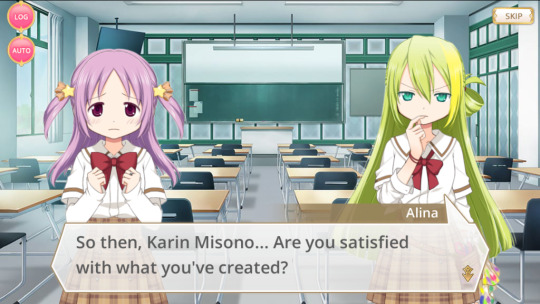
If Karin doesn’t want to rip up her manga, then according to Alina’s logic, that means she must be happy and satisfied with it. But even Alina can tell that Karin is still unsatisfied and lying to herself, hence Alina’s frustration and confusion at Karin not destroying her work.

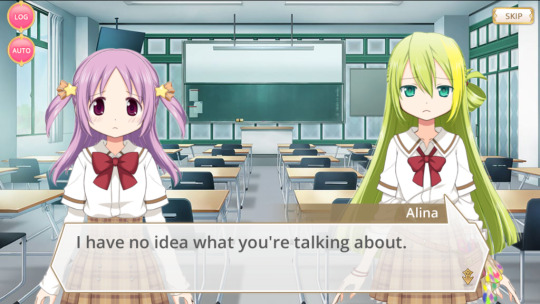
Another timeline note: Alina doesn’t lie, and even if she did, she doesn’t have a ring here. So I think it’s pretty settled that Karin’s MGS takes place before Alina learned about magical girls.
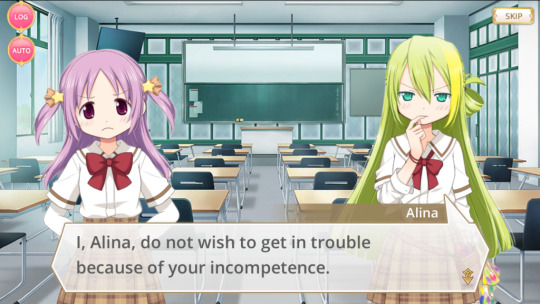

Oh huh. In NA, Alina thinks she’ll be the one in trouble if Karin isn’t ready. In the fan translation I’m used to, it seems like Alina is saying she’d just be mad herself… but I think NA has it right here. (In the original JP, Alina is using the passive form of “get angry” without a subject.)
Both work, but the impression NA gives with both this change and the earlier one is that someone at the school is basically putting Alina in charge of supervising Karin. Which… what the hell, Sakae Academy?

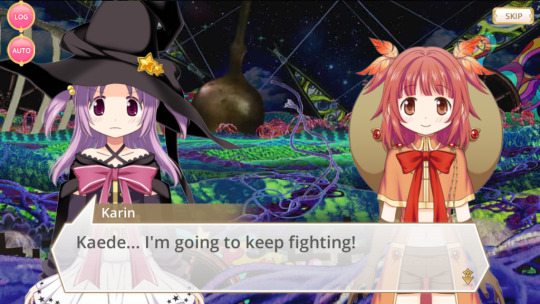
Going back a bit, Alina’s advice and its effect on Karin is interesting. One of Karin’s flaws really is that she makes excuses for herself and only half-commits, so Alina pushing her to think about what she truly wants and work hard to get it was genuinely what Karin needed to hear at the time.
However, Alina is also an obsessive perfectionist that tends to push herself to very clearly unhealthy levels…
So it’s rather fitting that on following Alina’s advice, Karin ends up pushing herself into doing something very dangerous: insisting on fighting a witch alone even though Kaede tries to get her to retreat. Karin is so determined she’s risking her life to fulfill her goal – something Alina would no doubt approve of. But also a great illustration of why Alina and her advice is flawed too.
Which, come to think of it, is part of why Karin and Alina’s MGS actually form a nice pair of complementary short stories. If you read them in chronological(?) / original JP release order, you first get to see how Alina helps Karin to grow as a person, and if you think hard about it, you can kind of see foreshadowing for Alina’s own issues. Then in Alina’s MGS, you get confirmation of that foreshadowing about Alina, and furthermore, the payoff to Karin’s development with her now being the one to give Alina some hard-hitting advice.
#magia record#misono karin#alina gray#alikari#magia record analysis#my ramblings#na translation changes#magia record na#magia record jp#read more
55 notes
·
View notes
Note
an observation around class in the oc to add to the discourse. DJ is one of the most ill-conceived and badly handled plotlines but it's interesting how Marissa - the most progressive of the Newport teens - is embarrassed about the relationship and never was with Ryan (or even Alex later on). The difference being here is someone visibly working class, working a blue collar job. Ryan also came with this Cohen stamp of approval which I think stopped Marissa for ever really seeing a class difference
Thank you so much for sending in your observation, Anon! The issue of class in The OC is really fascinating…the show had so much potential and so many missteps in this area.
It is really to The OC’s detriment that they never addressed the class issues inherent within the show’s premise with any kind of critical focus, because it would have made the show a lot more interesting and more complex than it was. Class constantly present, but the writers never actually dig into the reality that these class forces (intersected with gender, of course) profoundly shape the fates of these characters—class issues motivate their actions, influence their reactions to events and the introduction of other characters. But exploring that force is always deflected in favor of the emotional stakes…which in S1 is mostly fine because the emotional stakes are much more carefully rendered and the ensemble is much more tightly delineated. But in S2 and S3, with the exception of Taylor, nearly all important new characters are middle-to-lower class: DJ, Lindsay, Alex, Trey, Jonny, Volchok (presumably, I barely remember S3, but I know Marissa meets them through Newport Union…). And yet, the show always skates over the surface, never really digging into the issue. For example, part of the reason Ryan and Lindsay like one another is because they aren’t rich kids and they don’t see themselves as having safety nets the way students like Seth and Summer do. The show uses this to establish a parallel between them and then never addresses it again. Why?! That would be so much more interesting than Lindsay turning out to be Ryan’s actual aunt!
Marissa’s hesitance to invite DJ to the Sno-C is, as always with Marissa-related storylines, confusing in execution. I think she is embarrassed about him, and she also thinks that he won’t be interested in her rich-prep-school activities, which is also a class-based assumption. However, the show also implies that she’s made the decision to not invite him to spare his feelings…so it’s just a lot of mixed messaging. For one thing, it’s not like DJ’s covered in dirt and wearing jeans with grass stains… his appearance is really quite polished, even when he’s gardening! He wears nice button-down shirts! It’s not like you would guess he worked in people’s yards if you passed him on the street, nor is he the only gardener for all of Newport Beach…like, at most a few other teens at Harbor might have recognized him. We’re just given so little information, it's hard to make sense of their storyline.
But I do think you are absolutely right that she sees a genuine class difference with DJ in a way she never did with Ryan, and of course his race must surely factor into her understanding of him as well (although the show doesn’t even glance in that direction). It is interesting that Marissa’s tendency to be generous with her time, money, and resources does not seem to be a factor in their relationship…but then again, DJ isn’t framed to the audience as needing anything in particular (unlike Ryan or Trey or even Alex)…he’s just this flat cipher.
As a result of never really facing class head on, the show frequently ends up relying on unexamined and problematic stereotypes on what it means to be poor. For one thing, as you’ve pointed to in your comment, the very premise of the show rests on the assumption that the Cohens take in Ryan because they think he has promise and because he can rise above the destabilizing emotional and physical effects of poverty that have defined his life—he gets their “stamp of approval.” Poverty is ultimately presented as something that an individual can escape by virtue of being a better person, when it’s not. This is why Marissa (and Seth too) never really see Ryan as “poor”, because he displays qualities that demonstrate his suitability for “upper-class” life in a way that other poor people on the show don’t. (putting the rest of this mini-essay under the cut!)
Compare how Ryan is presented compared to his mother and his brother (both the S1 version and the S2 version): they are not especially intelligent, they get involved in relationships with people who are transparently coded to the audience as actively harmful (Dawn’s abusive boyfriend, Jess in S2, whoever got Trey to rob the car), and they don’t have manners. They do not regulate their emotional disruption in a way that is socially acceptable—see Trey knocking over displays in anger when Ryan and Marissa take him shopping, or Dawn wanting to talk about personal issues with Ryan in front of the Cohens. Trey’s whole narrative is basically that he could have gotten his shit together like Ryan and didn’t (primarily manifested through his attempted rape of Marissa). Dawn “surrenders” to the chaos of her life caused by her circumstances and admits to Kirsten that she’s giving up on being a mom as a result.
In contrast, Ryan displays characteristics that signal to the audience that he’s worth the Cohen’s (and our) attention - he’s quiet and private, with a clear sense of decorum, and he is physically fit and obviously attractive (The show uses visual markers to highlight class differences in a very interesting way). Even more significantly, he possesses skills and interests that can be translated into a “real” job, aka, a job that demands a certain form of intelligence that is highly valued on the economic market—Ryan’s high test scores are, like, the second thing we learn about him, and we learn in the second episode that he is interested in architecture and construction. These are broad and problematic stereotypes, absolutely—they are based on (Western) social conceptions of “good” behavior that have been codified by elites over decades and centuries. But they are deeply engrained in Western audiences, and The OC uses them to signal that Ryan is worthy of his “approval stamp” from the Cohens—he’s worthy of being plucked from Chino and transplanted into a dazzling new life filled with opportunities. The show doesn’t hide from how “miraculous” this is, but coupled with how practically every other “poor” person on the show is written, the writing seems to emphasize to the audience that Ryan rose above the “demons of poverty” in a way that Trey or Theresa couldn’t.
1 note
·
View note
Text
Innovations in Digital Stock markets

"Ah yet it's Electronic digital now". "Digital" a word as their origins lay in the asian digitalis, coming from digitus ("finger, toe"); today it's 2 synonymous together with computers and also televisions, video cameras, music participants, watches, and so forth, etc, and so forth But what regarding digital funds or even electronic digital democracy?
The particular printing click caused an innovation in its moment, hailed as any democratic push for good simply by many. Ebooks available to the particular masses has been indeed an innovation; and now we all also have electronic books and scientific devices to learn them with. The point that the original words and phrases have been protected into a mathematical form along with decoded to words in electronic format does not mean many of us trust fewer the words we could reading, nevertheless we may continue to prefer the looks of a bodily book compared to a piece of excellent plastic which usually needs to have it is battery recharged to keep functioning. Can a digital currencies like bitcoin actually provide a share to optimistic social improvement in as amazing a way?
To resolve this we should ask just what of money, exactly how are we to know it, put it to use and integrate it in to a sustainable style of a 'better world for those? ' Funds, unlike some other form of home, is unique because it may be useful for anything before an event also occurring. That implies nothing at all, yet can be utilized for great very good or fantastic evil, but it is only actually is regardless of its several manifestations in addition to consequences. This can be a unique although much confusing and abused commodity. Dollars has the straightforwardness of aiding buying and selling, and also a mathematical difficulty as showed by the economic markets; however it has simply no notion involving egalitarianism, meaningful or moral decision making. The idea acts as a great autonomous organization, yet it truly is both endogenous and exogenous to the international community. It offers no individuality and is effortlessly replaceable, but it is dealt with as a specific resource inside the global framework, its progress governed by the set of sophisticated rules which often determine the way it may respond. Yet in some niches the outcomes should never be completely foreseeable and, moreover; a commitment to be able to social the legal and a aversion for you to moral bassesse is not some sort of requirement of their use.
To ensure a foreign money to successfully perform typically the financial capabilities required than it, the intrinsic-value of money must be a frequently held opinion by individuals who use it. Inside November 2013 the US Economic council chair Committee in Homeland Safety & Governments Affairs identified that online currencies certainly are a legitimate way of payment, one of such will be Bitcoin. As a result of very low business deal fees incurred by the 'Bitcoin network' it gives a very genuine way to let the transfer connected with funds via migrant staff sending cash back to their family members without having to pay large transfer costs currently priced by organizations. A European Percentage calculated when the global regular remittance with 10% have been reduced to help 5% (the '5x5' motivation endorsed from the G20 inside 2011), this might result in one much more US$ 18 billion streaming into establishing countries; their use of the blockchain would certainly reduce these kinds of fees all over zero. These kinds of money exchange companies who also extract riches from the method may become dis-intermediated through the use of this infrastructure.
An array of important indicate note about cryptocurrencies is the allocated and decentralised nature of these networks. With all the growth of the net, we are maybe just discovering the 'tip of the iceberg' in respect regarding future enhancements which may manipulate undiscovered chance of allowing decentralisation but with a hitherto hidden or incomprehensible scale. Hence, whereas previously, when there is a need to get a large community it was simply achievable by using a hierarchical construction; with the outcome of the need for surrendering often the 'power' of the network into a small number of people who have a handling interest. It could be said that Bitcoin represents the exact decentralisation involving and the go on to a simple technique approach. Bitcoin represents since significant the advancement while peer-to-peer record sharing plus internet telephone (Skype regarding example).
There exists very little clearly produced legitimate regulation intended for digital or perhaps virtual stock markets, however quite a wide range of present laws that might apply according to the country's authorized financial construction for: Taxation, Banking and also Money Sending Regulation, Stock options Regulation, Felony and/or city law, Buyer Rights/Protection, Retirement benefits Regulation, Items and shares regulation, and the like. So the a couple of key concerns facing bitcoin are regardless of whether it can be viewed as legal tender, of course, if as an fixed and current assets then its classed seeing that property. Really practice to get nation-states that will explicitly establish currency like legal tender involving another nation-state (e. h. US$), avoiding them by recognising additional 'currencies' referred to as as money. A noteworthy exception to the is Australia which allows for that concept of a new 'unit connected with account' that will therefore be taken as a kind of 'private money' and can be found in 'multilateral eradicating circles. Inside the other circumstances of being thought to be property benefits discrepancy this is that, as opposed to property, digital camera currencies have capacity with divisibility directly into much smaller sums. Developed, wide open economies are often permissive to be able to digital values. The USA provides issued one of the most guidance and is also highly displayed on the road below. Money controlled economic climates are properly by meaning contentious or maybe hostile. Regarding many Camera and a few various other countries the niche has not still been dealt with.
Starting from the guidelines of democratic participation it can be immediately evident that bitcoin does not match the positive sociable impact part of such an aim in so far as it has the value is just not one it could exert effect over nonetheless is susceptible to market-forces. Nonetheless any 'new' crypto-currency may possibly offer democratic participation if the virtual currency exchange has diverse rules regarding governance along with issuance in relation to more socially based democratic principles.
Just what exactly if a "digital" currency can provide a good alternative to active forms of currency performing the particular role involving contributing efficiently to: typically the goals connected with promoting your socially hasta culture, often the equality with opportunity as well as the promotion regarding mutualism; which will as their extremely name suggests are alternate and/or contributory to an established or countrywide sovereign forex? Virtual cryptocurrencies such as bitcoin are a fresh and rising dynamic from the system; even though in their beginnings, the rate of creativity in the field of cryptocurrencies had been remarkable.
There are many elements which decide the 'effectiveness' of money to deliver about beneficial social in addition to environmental alter; pervading community ideology, economy, the desire involving local complexes and website visitors to pursue substitute social results whilst wanting to maximise economical opportunity, developing of public capital, and others. If a regional digital foreign money could be built to build added resilience in a local overall economy and increase economic positive aspects then launch on a a lot more widespread schedule merits exploration. When the existing economic system doesn't deliver it is actually manifested an ideal ways since: increased societal isolation, increased crime rates, actual dereliction, illness, a lack of a sense community, between other unfavorable social influences.
0 notes
Text
to drop off the earth
I don’t know how to go about explaining things, why I am where I am, why I do what I do.. why I had to give my life over to another person 24/7 - so being at a loss, I’ve used “grabs” from other explanatory sites in the hope that they speak for me and somehow explain my new life.
“Living with someone who suffers from schizophrenia, prone to paranoid delusions, delusions of grandeur, psychosis and both obsessive and impulsive behaviours - even when the condition is at its calmest, stress situations trigger it. Situations such as being out of routine, to situations such as being around new people…”
…to be, in effect, a caretaker of this person, tasked every day to keep a schizophrenic stable, where even when medicated, there are outbursts, and rant attacks that can continue on and off for days” As an extension to the schizophrenia, l have learnt to deal with, and accept, the consequent disconnects, the loss of friendships, alienation and isolation. There are many, many bright spots but in the long run, many opportunities which present themselves in life are to be destroyed because of it.
“For partners of the mentally ill, they may find themselves not only in the role of primary caretaker, but primary parent and primary breadwinner as well. This is an enormous and stressful burden, and it can seem to the well partner that there are few options in the way of emotional or financial support.
So many partners are forced into choosing between their own physical and mental well-being, and that of their loved one. Guilt, self-blame, and self-imposed obligation to care for the ill partner leaves them in a situation where they sacrifice and ignore all their own needs, running the risk of physical and emotional burnout.
The well partner must establish personal limits - what behaviour is and is not acceptable. Although schizophrenia causes people to behave in ways that are not normal to their character, the well partner must recognize which behaviours are symptoms of the illness, and which are by-products of the illness (emotional stress, shame, denial, etc) and/or honest-to-god character traits. Even some behaviours that may be a symptom of the illness are unacceptable under any circumstances (these include: physical abuse, mental abuse, destructive/harmful behaviour to self, others, or property, financial mismanagement, extreme emotional abuse, or criminal actions). Your partner may not have control over his symptoms, but he can control his own reactions to them. This means they should be committed to staying in a treatment program that works, and committed to working with you as their partner to find reasonable solutions to problem behaviours.
Primary caretakers of the mentally ill must find other outlets and support for themselves - through therapy, support groups, social or community activities - to avoid becoming completely overwhelmed by their loved one's sickness. In Victoria Secunda's book When Madness Comes Home, she states: "Virtually all of the partners of the mentally ill I have interviewed have had to construct parallel lives to find a sense of emotional gratification and respite from the strain of caregiving."
“Never argue with a delusion,” one of my mentors often said. Paranoid people are fragile and ill, in the sense that they are out of touch with reality. However, they can become terrifying if fantasy turns to action. The need to retaliate against imagined assaults combined with intact “executive function” (the ability to think and plan) leads to aggressive behaviours and schemes. Caretakers, innocent people, are accused and besmirched, are traumatized”.
· Delusions - paranoid beliefs that are not consistent with reality and that the sufferer maintains as being true despite all evidence to the contrary. Examples? That the person is being controlled, their minds read, being plotted against; it’s as if the person is losing touch with all reality. Some even exhibit the belief that they are someone else.
· Hallucinations - hearing voices and seeing things that aren’t actually there. These are sensory experiences that the person experiences, that have no basis in reality. Hearing of voices is the most common hallucination and can be internal (coming from their own mind) or external (coming from someone else). The voices may talk to the person and instruct them on their behaviour, commanding them to engage in certain acts. The voices can also talk to each other. This is where the notion of ‘split personality’ has been confused with schizophrenia, in the past.
· Disorganized thinking - strange, delusional ideas and thoughts, which make it difficult to carry on a simple conversation. The thoughts don’t follow a logical sequence, or at least, not logical to those around the person suffering from schizophrenia. They may also stop speaking entirely, mid-thought, or invent words and a language of their own.
…it is these positive symptoms that cause the most distress and dysfunction for a person coping with a spouse who has schizophrenia.
“It is not uncommon for people with schizophrenia to be reluctant to get help or take medication, as part of their treatment. In fact, the notion of treatment plays right into the paranoid delusions of many schizophrenics: that they are being controlled by someone, that they are being harassed. Alternatively, many believe that they don’t require treatment because the voices and conspiracies that they are anxious about are real to them, and not related to any delusion whatsoever.
Your concern, first and foremost, has to be your safety. If your spouse is refusing treatment and is being overcome by psychotic episodes, they risk becoming violent. In that case, you will need to call in a crisis team or the police to help you deal with the situation. Thankfully, violent behaviour is not a hallmark of schizophrenia: if anything, a person suffering from the disorder is more likely to harm themselves than anyone else. But physical violence is only one concern.
Verbal and emotional abuse, property destruction (example, punching holes in walls), creating hazards such as the setting of fires, substance abuse, despotic behaviour (example, not letting people in the home use the phone) are all possible behaviours that fall within the scope of schizophrenia but which, at the risk of harm to yourself, cannot be tolerated. It creates a ‘walking on eggshells’ environment you become afraid to do something that will trigger an outburst; an exhausting and debilitating way of life for those who surround the sufferer”.
Encouraging your spouse to seek treatment involves different techniques, including providing options that give your spouse a measure of control. For example, offer them the option of being accompanied to the appointment by someone other than yourself, if they are suspicious of your motives (paranoid delusion).
Once they accept their diagnosis, you can play a strong role in ensuring that they remain involved in their treatment plan.
If your schizophrenic spouse says things that are clearly false but which they believe wholeheartedly, communication has to remain positive. You don’t need to go along with what they are saying, perpetuating their delusion, but you should also not state that they are wrong or, worse, deluded. It’s best to frame a positive statement along the lines that every person has the right to believe what they want, and it’s okay for people to have different points of view.
Prepare for a crisis.
The important thing to remember in a crisis is to act to defuse it, not inflame it. Limiting visual distractions, noise, contact with other people (ask guests to leave, for example) are all important steps in calming the situation. Don’t engage your spouse’s behaviour directly but instead do everything you can to bring a sense of calm to the environment.
Don’t argue with delusions: you won’t win.
“A key to dealing with your schizophrenic spouse is to accept the disorder and educate yourself on it. You cannot argue with it. You cannot reason with it. There is no value in expressing anger or irritation when your spouse is dealing with their symptoms. It will not help you or them. Remember that you are dealing with their illness, not them.”
You need to recognize what you can and can’t do in dealing with your spouse and their illness. Respite care is an option for situations where the spouse is not able to be left alone and it’s an important one to consider, as a primary caregiver. You cannot possibly help your spouse or be present and available for the rest of your family and friends if you are exhausted to the point of a breakdown.
Find support where you can, which might be a group of spouses of schizophrenia sufferers. Your shared experiences and the ability to talk about your situation freely, without fear of judgement, is invaluable to your own self care. Despite the limitations that schizophrenia can pose on your life, you have to take care to try and keep up relationships with family and friends. They are a comfort and a link to a world that doesn’t include mental illness, which can in and of itself, create the respite you need.
Ensure that you take other steps in self care including eating properly, getting rest and exercise. It’s perhaps easy to say, but ultimately, your life cannot be subsumed by the illness that your spouse is suffering. You need to make sure that you have a life too.
Schizophrenia can make it feel like there’s a lot more take than give but it’s important to always remember that your spouse is not their illness. They are a person who needs love and care, just as you do.
“Don’t be afraid, don’t put up a defense against us, don’t brace yourself for something bad. Be there to talk and support. It may not be pleasant, personally I can be downright mean when in a bad frame of mind. But you’ll both be glad you were there.”
Listen attentively and laugh as often as you can — we often hear when people are speaking but are we always listening? There’s a difference. Often, that is all a person who is suffering needs: to know that someone is listening to them. Not making suggestions, not always trying to fix things. Just being there.
Develop coping mechanisms and rules — find ways to cope with the results of the symptoms. For example, if your spouse tends to go on spending sprees while in a manic episode, you might need to keep hold of the credit cards. If their driving becomes erratic or overly aggressive, it’s time to keep hold of the car keys. Establishing some rules when they are in a calm state can help you both deal with the times when the disorder takes over. Part of these processes needs to be planning for an emergency. If your spouse’s behaviour suddenly becomes unmanageable, even life threatening, you need to have a plan in place: who to call, after hours numbers, which hospital to go to and so on. Scrambling for this information in the middle of a crisis will only aggravate the situation, so like the boy scouts say: be prepared!
I love this man. When he is good, he is GOLDEN.
I still, on top of this, work a 40 hour week in Property Law as Personal Assistant/Conveyancing Support Clerk which is BRUTAL.
I have my family back in my life again.
My son turned 18 last week.
I have missed certain opportunities that broke my heart.
I miss the fuck out of all my friends.
I MISS THE FUCK OUT OF ALL MY FRIENDS.
So if you are reading this, please know that I think about you all the time. I wonder how you guys are and what you’re doing. I wish I was there.
0 notes